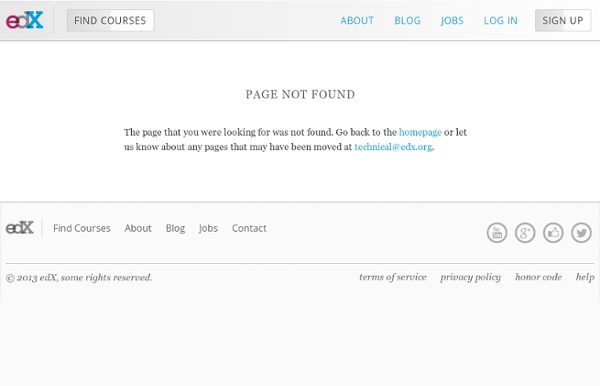



Twitter : les principaux hashtags de la communauté éducative mondiale Twitter connaît un véritable succès dans la communauté éducative francophone. Le nombre d’acteurs de l’éducation ayant un compte ne cesse de croître et les enseignants sont maintenant rejoints par les chefs d’établissements et les autres personnels d’encadrement. L’échange d’informations et les débats d’idées font partie des usages dominants. Cependant des enseignants intègrent l’outil dans leur séquence pédagogique pour faire travailler leurs élèves, notamment sur l’apprentissage des langues et cela quel que soit leur niveau. De fait, un nombre important de hashtags dédiés à l’éducation fleurissent sur twitter. Les hashtags sont des mots-clés ajoutés par les twitterers dans leurs tweets afin de les rattacher à un flux d’échange spécifique. Les hashtags généralistes : trouver une aiguille dans une botte de tweets #edchat : destiné aux enseignants qui souhaitent échanger sur des thématiques générales intéressant la communauté éducative dans son ensemble.
Free Online Course Materials | About OCW Khan Academy Alsacréations : Actualités et tutoriels HTML, HTML5, CSS, CSS3, standards du web The End of Teachers Unions In the next two decades, their political power will wane, and America will finally achieve meaningful K-12 reform. Editor's note: In this essay, the author blends prediction with prescription to paint a vivid picture of what American education will look like in 2030. The essay is from an online publication of the Hoover Institution’s Koret Task Force on K-12 Education, American Education in 2030. In 2012 the American education system was doing what it did best. The school system of that era really had two problems. Photo credit: Jeremy Wilburn Unbeknownst to almost everyone at the time, however, the American education system of 2012 was in the early stages of a revolution. How did all this happen? The Politics of Education in 2012 In 2012, the structure of power that protected the educational status quo had been in place for roughly three decades. The teachers unions were now the political leaders of public education. Yet if this was an era of reform, it was also an era of disappointment.
Koret Task Force on K–12 Education Significant gifts for the support of this task force are acknowledged from Koret Foundation Lynde and Harry Bradley Foundation Mrs. Edmund W. Littlefield Bernard Lee Schwartz Foundation, Inc. Tad and Dianne TaubeTaube Family Foundation The K–12 Education Task Force focuses on education policy as it relates to government provision and oversight versus private solutions (both within and outside the public school system) that stress choice, accountability, and transparency; that include systematic reform options such as vouchers, charter schools, and testing; and that weigh equity concerns against outcome objectives. Chester E. What Lies Ahead for America's Children and Their SchoolsEdited by Chester E. March 27, 2014 | Education Next Homework Horror Stories Recent stories in the popular press have featured children burdened with an enormous amount of homework, three hours or more per night. March 17, 2014 | NPR Caroline Hoxby on Tell Me More Caroline M. More News»
Home - Floating University Free courses from world's top unis a swipe away in online revolution IMAGINE a university degree that is like a passport: a subject from Swinburne stamped alongside another from Sydney University, with courses from overseas colleges such as Stanford or Harvard thrown in. You could earn your degree without travelling further than your laptop, and far more cheaply than on campus. Far-fetched? The proliferation of websites offering courses from top universities - MIT and Stanford among them - and the globalisation of learning generally means this scenario may one day be possible. Higher education is in the middle of a digital revolution, and who has access to it, and how it is done, will shift dramatically in the next few years. ''The world of tertiary education is changing fundamentally, and the pace of change is greater than ever before,'' says Monash University vice-chancellor Ed Byrne, likening it to the 15th-century invention of the printing press. Advertisement When he finished the course, Dr Chai received a certificate of completion for no charge.
Free Open Source Textbooks Growing in Popularity in College Classes Though paying for tuition and housing eat up more money, textbook costs are among the most groan-inducing expenses incurred by college students. With tools like Amazon and chegg.com, only the least resourceful of freshmen are blowing $200 for a brand new textbook these days. But a new type of textbook is threatening to disrupt a $4.5 billion industry that has so far avoided the media upheavals experienced in music, movies and trade publications. Open-source textbooks, free for students to use and for professors to modify, are being developed by more companies and adopted in more classrooms. “There’s a crisis of access in this country,” says Richard Baraniuk, a computer and electrical engineering professor at Rice University. Baraniuk thinks that cost should be reduced to zero. Now he’s the director of OpenStax College, a nonprofit organization that is working to develop 25 college textbooks for introductory-level courses. OpenStax is not alone in this emerging textbook market.